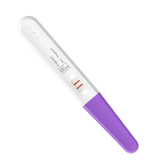Subscribe to out newsletter today to receive latest news administrate cost effective for tactical data.
2478 Street City Ohio 90255
Shopping cart
- Phone:(619) 804-7748
- Email:info@ayseralmshhdanimd.com
- 330 S Magnolia Ave Suite 101, El Cajon, CA 92020
Subscribe to out newsletter today to receive latest news administrate cost effective for tactical data.
2478 Street City Ohio 90255
Menstrual disorders can significantly impact a woman’s quality of life. From irregular periods to heavy bleeding and debilitating pain, these conditions can disrupt daily routines, affect emotional well-being, and even signal underlying health issues. At the practice of Dr. Ayser Almshhdani, we understand the challenges that menstrual disorders present and are dedicated to providing compassionate care and effective treatment options.
Menstrual disorders encompass a range of conditions that affect the regularity, frequency, duration, or amount of menstrual flow. These disorders can occur at any point during a woman’s reproductive years and may be caused by various factors, including hormonal imbalances, structural abnormalities in the reproductive organs, or underlying medical conditions.


At our practice, we understand that every woman’s experience with menstrual disorders is unique. We take a personalized approach to diagnosis and treatment, carefully considering your symptoms, medical history, and lifestyle factors.
Diagnosis:
Treatment:
The treatment for menstrual disorders varies depending on the underlying cause and the severity of your symptoms. Some common treatment options include:
Medications:
Minimally Invasive Procedures:
Lifestyle Changes:
We’re Here to Help
If you are experiencing irregular periods, heavy menstrual bleeding, or painful periods, don’t hesitate to seek help. Dr. Ayser Almshhdani and her team are dedicated to providing compassionate care and helping you find relief from your symptoms. Schedule a consultation today to discuss your concerns and develop a personalized treatment plan.